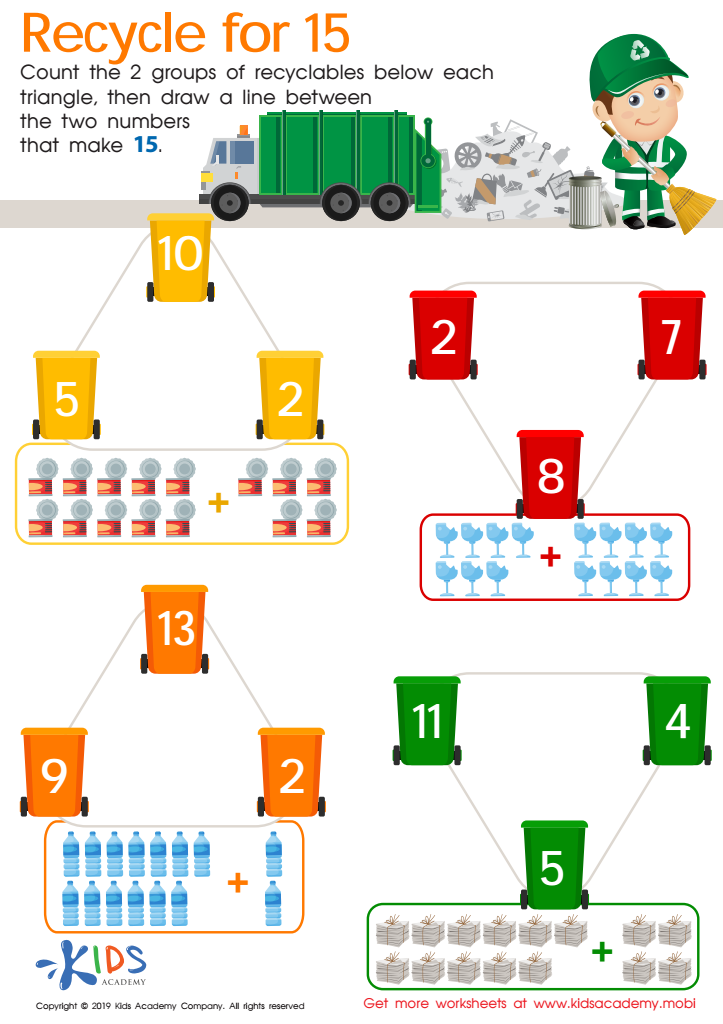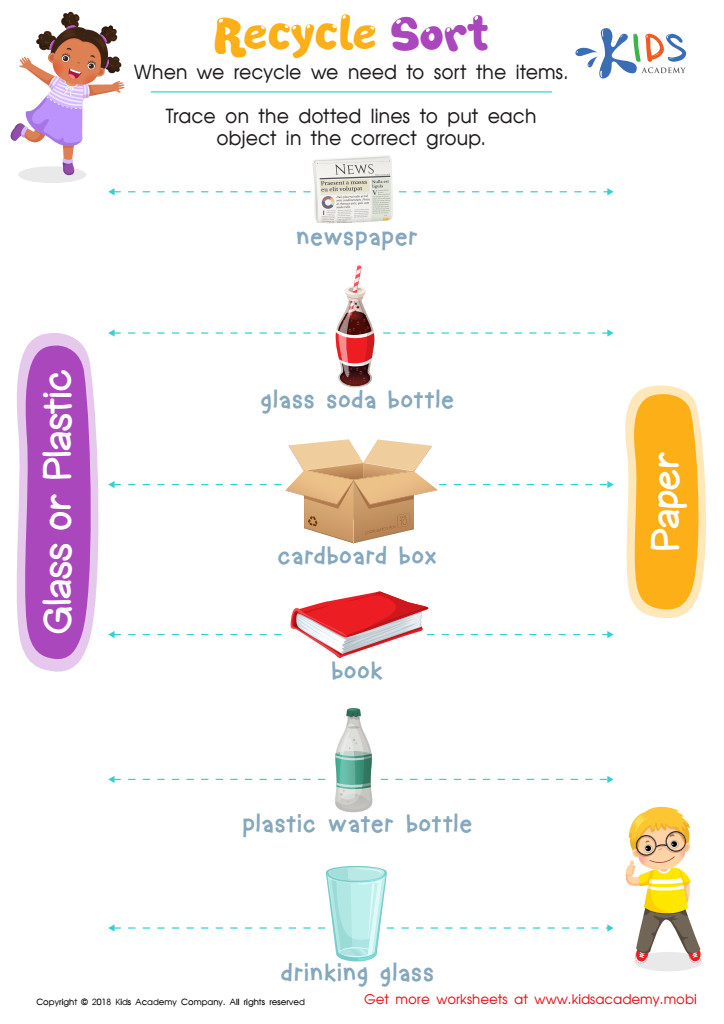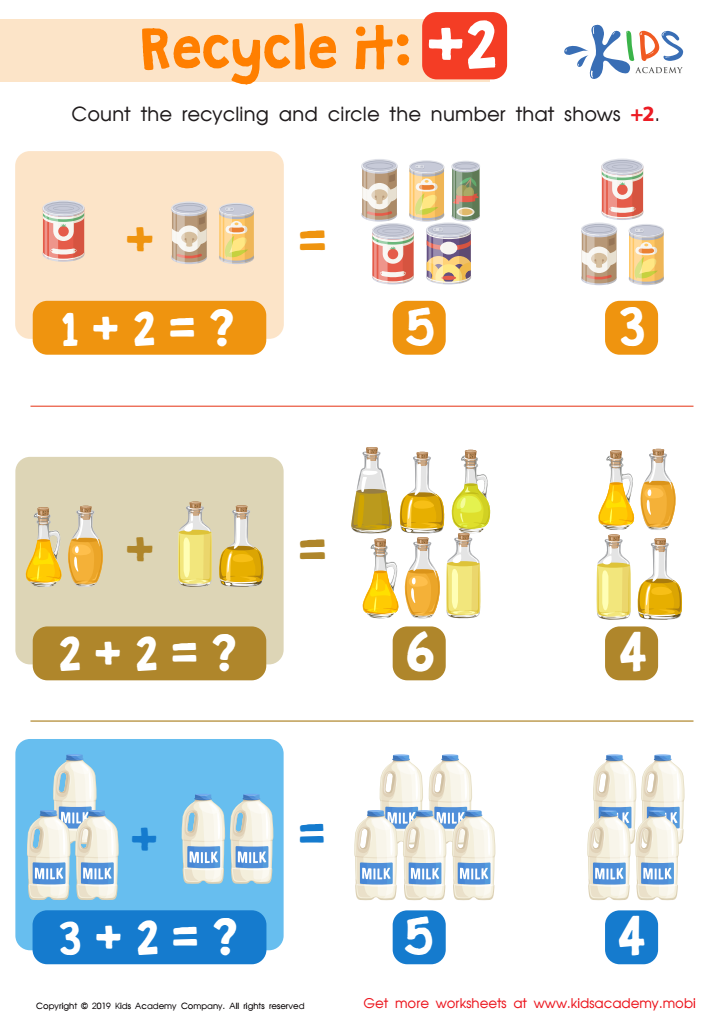Environmental awareness Math Worksheets for Ages 5-6
3 filtered results
-
From - To
Nurture a love for math and the environment with our Environmental Awareness Math Worksheets for Ages 5-6 at Kids Academy! Designed to engage young learners, these worksheets integrate essential math skills with environmental themes, fostering both academic growth and eco-consciousness. Activities include counting, addition, and pattern recognition, all set within colorful contexts like recycling, wildlife, and plant life. Perfect for both classroom and home use, our worksheets aim to inspire critical thinking and a responsible mindset about the world. Start your child’s journey to math success and environmental stewardship today with these fun and educational resources!


Recycle for 15 Worksheet


Recycle Sort Worksheet


Recycle It: +2 Worksheet
Raising environmental awareness through math for children ages 5-6 is essential for laying the foundation for responsible habits and a sense of stewardship from an early age. At this stage, children are extremely curious and rapidly absorb information, making it an ideal time to introduce concepts that link daily activities and environmental outcomes.
Incorporating environmental awareness into math lessons allows children to see real-world applications of what they learn. For example, simple counting exercises can be tied into activities like sorting recyclables, observing patterns in nature, or measuring how water usage changes over time. These practical applications make math not just a subject to study but a tool to understand their surroundings and the impact of their actions.
Furthermore, such integrated lessons foster critical thinking and problem-solving skills. Children start to appreciate the significance of environmentally friendly choices by working on basic math problems related to resource use, such as how many leaves a tree has shed or how planting trees can improve air quality. This integration subtly instills a more profound understanding of their role in a larger ecological system.
Parents and teachers must focus on environmental awareness through math because it builds a richer, more interconnected learning experience. This approach not only engages young minds but also cultivates a responsible generation that will be more prepared to tackle future environmental challenges.

 Assign to My Students
Assign to My Students



















